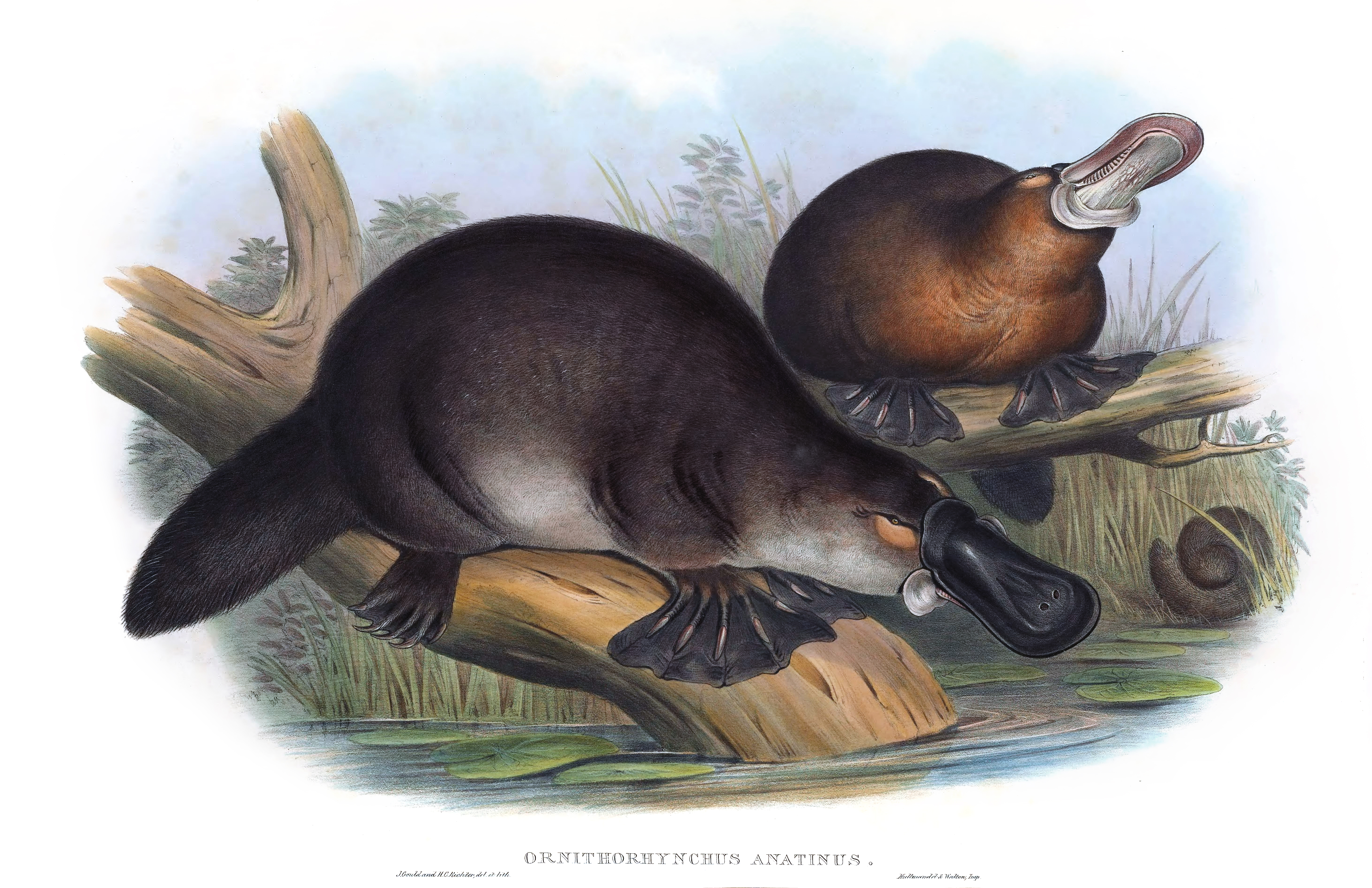
That is not to say that the Christian defense of trans people is in any way a bad thing; much to the contrary, I believe it a Christian's duty to defend the dignity and gender identities of our trans friends, family, and neighbors. But that duty does not grant any sort of licence to treat another population as mere means to that good end. The sin was not one of commission but one of omission. While using DeFranza's work to defend the identities of trans people, I did not use them to defend or really even specifically mention, the very real concerns of Intersex people. I hope to do correct that omission here.
For those who are not aware, Intersex people are people whose bodies do not fully conform to the more typical patterns which we (and most modern societies) use to assign people to one of two sexes (female or male). Numbers are hard to pin down because there are a lot of different ways that a person can be intersex and there are ongoing disagreements about what "counts" as an intersex condition so I have seen everything from 1 in 2000 to 2% (1 in 50) depending on who is counting and what degree of variation the counter allows for.
There are, so far as I know, two specific areas of concern wherein intersex people most frequently encounter, and are subject to, injustice. The first area of concern is simple recognition of their existence not as defective iterations of males or females, men or women, but as intersex persons who may be male, may be female, may be another sex, another gender, none, or both. That is to say the first area of concern has to do with recognizing the existence and dignity of intersex persons qua intersex. The second area of particular concern for intersex people has grown out of the intersection of the first area with technological development in the field of medicine. Because western society is generally uncomfortable with facts and events which complicate the categories we use to understand our world, it has become almost standard practice for doctors to surgically intervene when healthy intersex children are born and conduct surgeries on them in order to make their bodies conform to the more typical male or female pattern. Now, because sex is determined by more than just a person's genitals (some intersex people have fairly typically male external genitalia, some have typically female external genitalia, while some have external genitalia with is ambiguous) this is not a case of "correcting" a person's genitalia to conform to what they "really" are (what the person "really" is is an intersex person in any case). These surgeries which are often not at all medically necessary introduce all sorts of horrendous complications into the lives of these intersex people. The stories about this are heartbreaking and, rather than relate them myself I will encourage you to check out the documentary Intersex and Faith or to hop on Youtube and watch one of the many interviews and documentaries there. Intersex activists have made the claim that these surgeries, and the treatments which often accompany them, amount to genital mutilation and something like involuntary child abuse.
Now, working backwards through these two areas of concern, it strikes me that there is no reason why a Christian of almost any theological bent should not join in the efforts of intersex activists to end medically unnecessary surgeries on infants and children. The obvious alternative—recommended by many intersex activists—is to hold off on medically unnecessary surgical manipulation of a person's primary and secondary sex characteristics until they are old enough make an informed decision and let their own wishes be known.
I said just now that there is no reason that a Christian should not support ending these unnecessary surgeries and treatments. It would have been more accurate to say that there is no justification. There are, unfortunately, several reasons that some Christians do oppose these efforts; it is just that their reasons are not reasonable. The primary reason—I suspect—that a theologically conservative Christian might support the continued implementation of infant genital "modification" surgeries grows directly out of the first area of concern where intersex people encounter injustice: preservation of the "gender binary". Theologically conservative Christians are, despite a paucity of Biblical support for this view, often deeply wedded to the idea that sex is a binary category and that all people must be, in some real way, finally either female or male. While this commitment on their part does not logically demand that they support genital "modification" surgery in intersex infants since those intersex children may well grow up to identify with one or the other of the binary options, it does entail a profound discomfort with the ongoing ambiguity which is represented in a person whose body is not "clearly" male or female. Effectively, some theologically conservative Christians (as well as some Christians of other theological stripes) may be tempted to support genital modification surgeries on intersex infants in order to assuage their own emotional discomfort with the existence of those infants as intersex individuals. Thought they may provide other justifications (each of which should each be analyzed and responded to on its own merits, I am not supporting the use of bulverism here) it strikes me as rather likely that their motivation has to do with a desire to remain in comfortable denial about the fact that the taxonomy we have labeled "physical sex" is far more nuanced and complex than they want it to be and they are thus willing that these surgeries should be performed despite the negative consequences such "treatments" will have on the intersex children themselves. Once more, this is my hypothesis for why some theologically conservative Christians may support genital surgery on intersex infants despite the fact that there is no compelling Biblical or theological case that they ought to. There are other possibilities, but if I am at all correct in this then it is evident that Christian opposition to intersex people in the second area of concern derives primarily from Christian opposition to intersex people in the first area of concern: contemporary theologically conservative Christians, together with many other people in contemporary Western society, harbor a deep discomfort towards the existence of people who problematize their neat biological taxonomies.
 |
| Intersex people can become the scapegoats of people who fear uncertainty |
So the biological case is all in favor of recognizing that a binary taxonomy of sex is insufficient to describe the totality of people who actually exist in the world. But what is the theological argument which intersex non-affirming Christians cling to? It comes down to two claims: the first (which turns out to be false) is that the Bible only mentions two genders: "male" and "female"; while the second is that the Genesis account chronicles the creation of "man and woman" as "very good". As regards the first claim, Megan DeFranza has already established pretty conclusively that second temple Jewish thinkers had six or seven item list of possible sexes and that Jesus seems to be referencing people on this list when, in Matthew 19, he refers to a number of "types" of eunuch. So the claim that "male" and "female" are the only sexes which appear in the Bible is flat wrong.
The second claim is one I find especially objectionable just because it presents a premise "God declared 'very good' the creation of a man and a woman" as equivalent to the conclusion "Male and female are the only two sexes which God acknowledges as good". Has it never occurred to them that Genesis contains no explicit divine recommendation of ice cream sundaes or roller derby? Still it could be pressed that the declaration of the Adam (male/man) and the Eve (female/woman) as "very good" implies that it is "very good" for the total diversity of the human experience to be confined to those two sexes—but I don't see how such a claim could be sustained. As DeFranza has pointed out, the creation account in Genesis follows the pattern of things being created and declared good. Those things constitute several of the rough taxonomies with which we understand the world: night and day; dry land from sea; fish that swim, birds that fly, and animals that crawls along the ground etc... . In each case, the taxonomies Genesis uses are perfectly appropriate for suggesting "all of the stuff in the relevant category" but if picked apart and taken in the restrictive sense that the intersex non-affirming Christian wants to take the Adam and the Eve creation account, would contain gaping holes. The same argument which wants to pronounce sexes beyond "female" and "male" as "not good" must then turn around to similarly decry dawn and twilight (which are neither day nor night), marshes (which are neither dry ground nor sea), amphibians, penguins, and platypuses (which are not swimming fish, flying birds, or land-crawling mammals). Clearly the reading of Genesis which restricts "goodness" to those things which can be pedantically sorted into the categories explicitly described in the creation account is a poor reading of the text. DeFranza suggests that a far more robust reading of the Genesis account would be one which understands the categories used in that text to be representative of the total diversity which is associated with the list. Thus when God declares day and night good we are to understand that the whole 24 hour rhythm is a good creation of God; when God declares the land and the sea good we are to understand that all manner of terrain is a good creation of God; when God declares the various types of animal good we are to claim that the whole diversity of living beings is a good creation of God, and when God declares the Adam and the Eve "very good" we are to understand that the full diversity of human sex and gender is a very good creation of God.
 |
| But seriously, how could they not be good? |
On a final note. I want to make two things clear:
- I know that there is much more to be said about intersex people: that they are not "a product of the fall"; that, in their particularities, they can help those of us who are not intersex to better understand ourselves, our world, and God; that the intersex experience is far from homogenous—it is diverse and complex, and much more.
- I am almost certain to have got some things wrong here and I would appreciate any corrections or suggestions on my analysis or understanding of the facts.
Most of the information about intersex people in this piece comes from one of the following sources which I strongly encourage you to read to become more acquainted with intersex people, their awesomeness and their concerns:
No comments:
Post a Comment